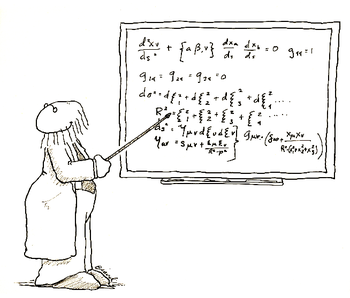
Way back in the previous century, I attended Ohio University at Athens. A young, naive freshman, I headed off one gloomy autumn day to the campus library, searching for source material for an astronomy paper. The stacks were vast; I was looking at more books than I had ever seen in one place.
By New World standards, OU is an old school, founded in 1804, the year after Ohio entered the Union. They’ve been gathering books and periodicals for quite some time.
According to Wikipedia, the Vernon R. Alden Library has switched completely from the Dewey Decimal System to the Library of Congress System. However, back in 1977 they were still in transition. All the old books were in Dewey, but the staff were categorizing new acquisitions using LOC codes. I gravitated to the old stacks, perhaps because I was more comfortable with the older numbering system. Or maybe I just like the smell of old books.
Ready Steady Go!
At any rate, that day I came upon Fred Hoyle’s Astronomy from 1962. Hoyle, of course, believed in the Steady State theory of the universe. This was my first introduction to it, and I found it fascinating. So I wrote a short paper on the subject, based on Hoyle’s treatment. What my naive freshman self didn’t know was that just a couple of years after Hoyle published Astronomy, Arno Penzias and Robert Wilson found the echo of the Big Bang — background radiation evenly spread throughout the sky, compelling evidence for the origins of our universe.
[I find it mildly ironic that while writing this post, news has arrived that calls into question the Big Bang. Try wrapping your head around this: “Brian Koberlein from the Rochester Institute of Technology pointed out that while it may appear that the study suggests that the Big Bang did not happen, the event still occurred.“]
While reading Shirley Jackson Case’s The Historicity of Jesus, I was reminded of that incident from my youth. As I recall, the teacher’s aide who graded my paper was more forgiving than I deserved. But I learned my lesson. It’s all right to have some familiarity with older research, but the careful student will always keep up with the most recent work in the field.
On the bright side, because Case’s book is over a century old Google (before it lost interest in such altruistic efforts) has lovingly scanned it and put on line. You can even download a PDF copy or read it at archive.org. On the other hand, because he wrote it nearly 103 years ago, some of the arguments are a little stale. Continue reading ““It is absurd to suggest . . .” — Shirley Jackson Case on The Historicity of Jesus“



